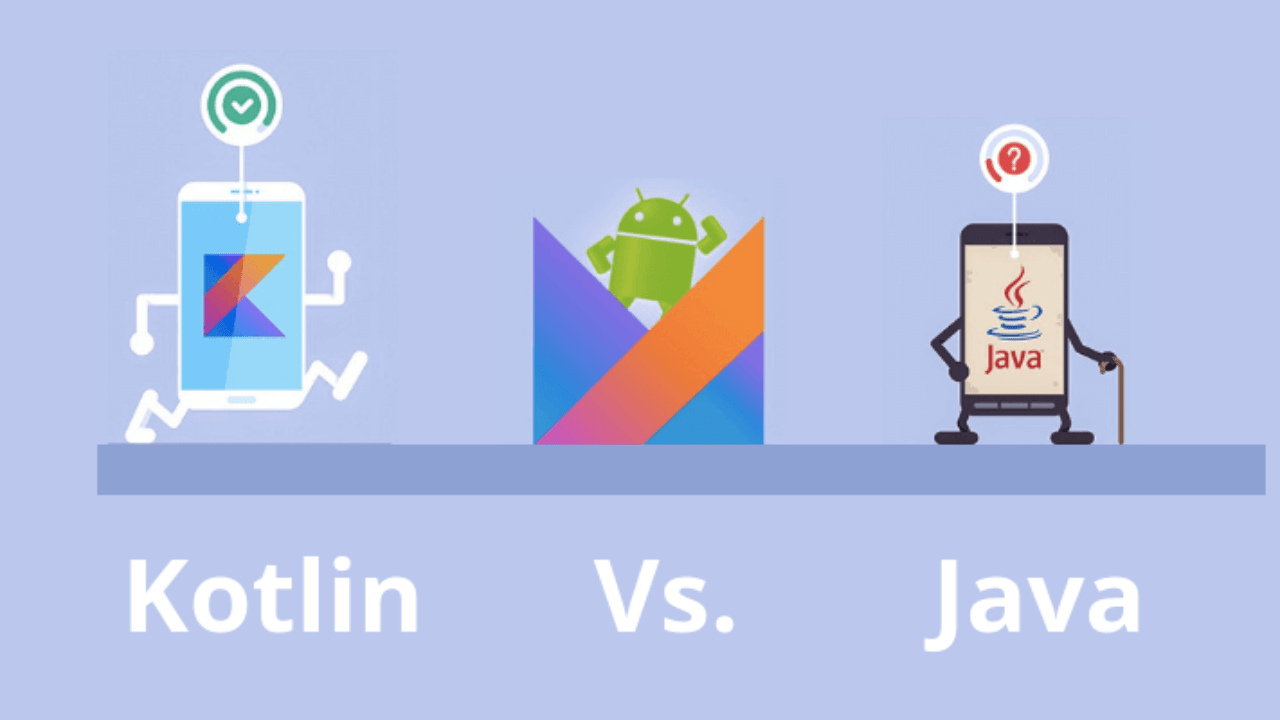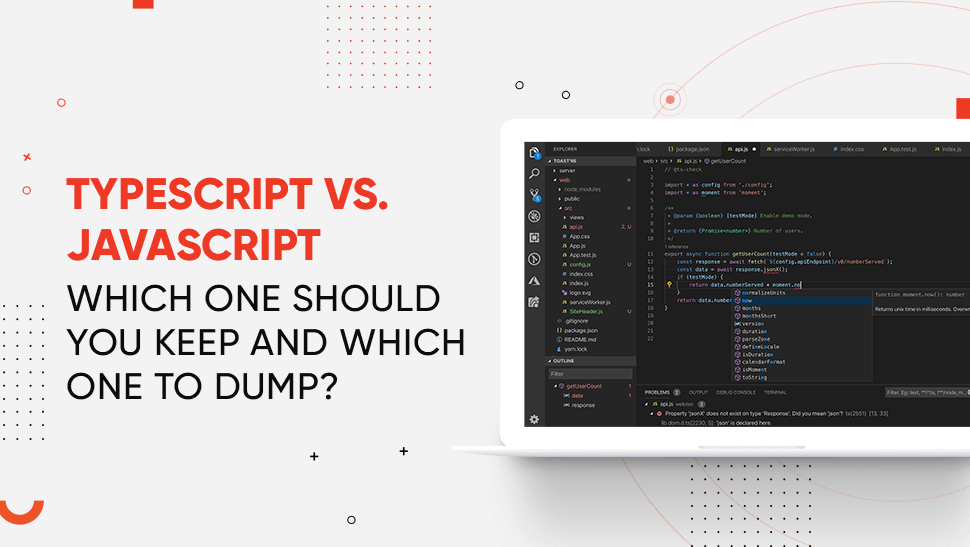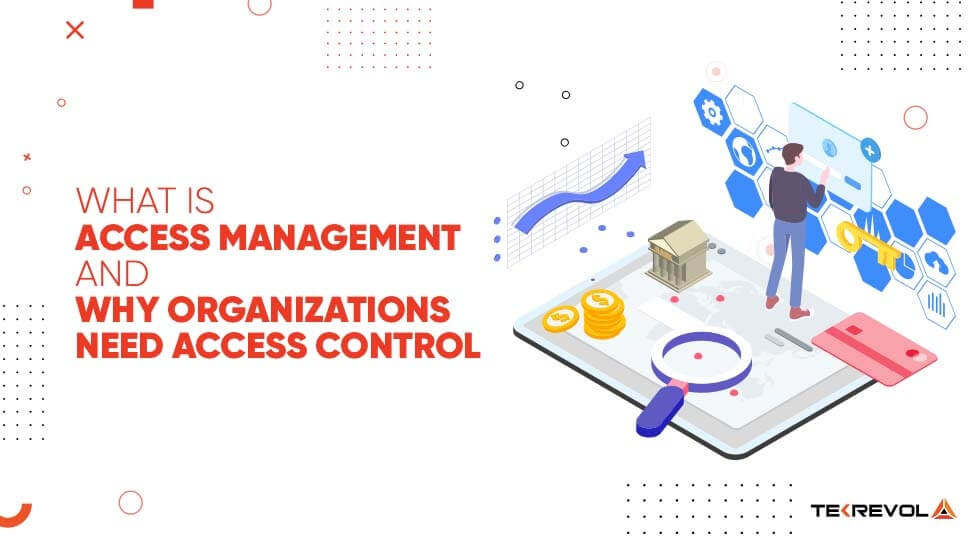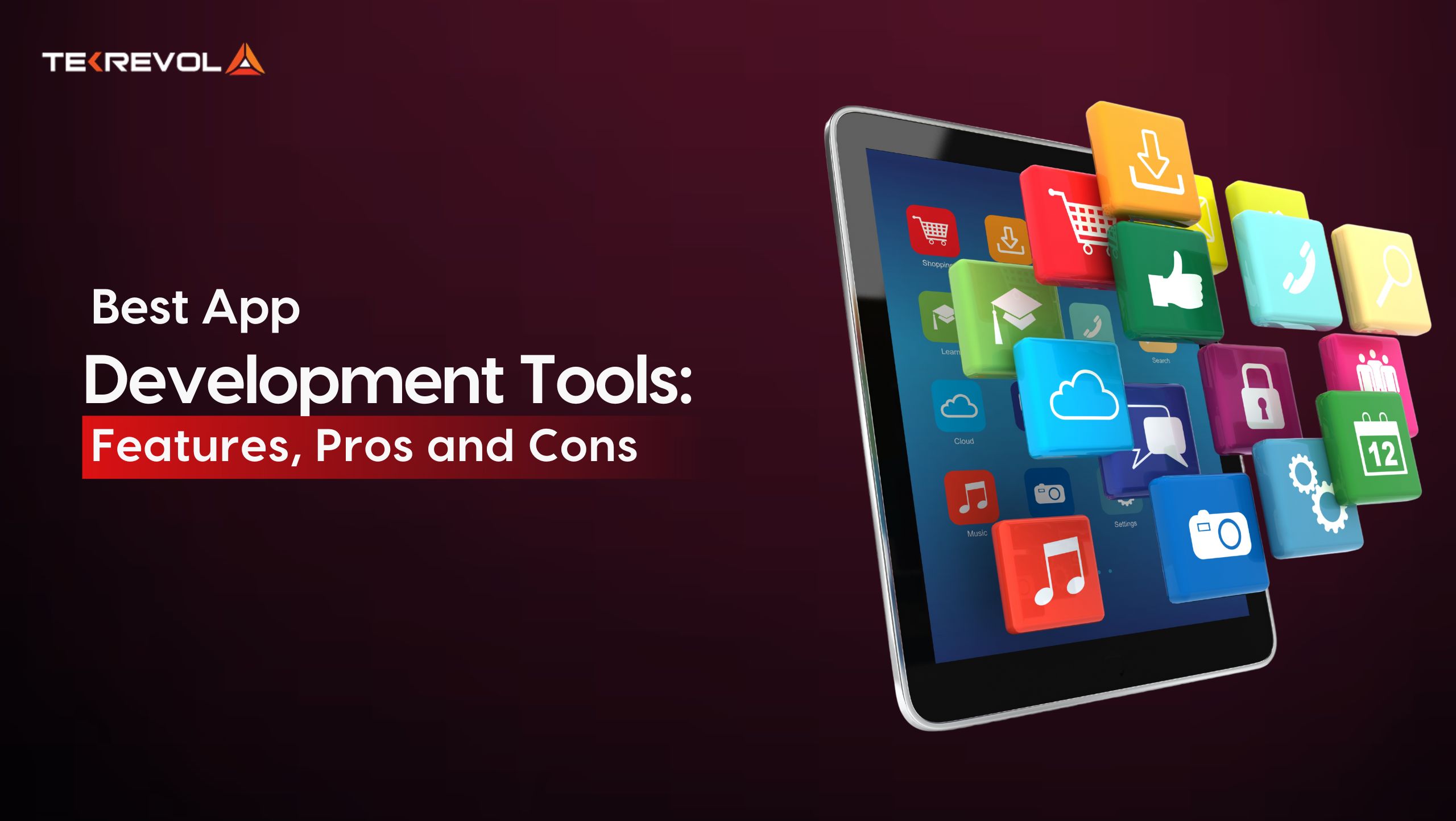In this article, we will uncover the differences between two popular programming languages, Kotlin and Java.
The debate Kotlin Vs. Java has been going on for too long, and today, we’re listing down the main differences, features, applications, and USPs of both languages so that you can differentiate between the two easily.
But first, let’s learn “What is Kotlin?” and “What is Java?”.
Key Difference Between Java and Kotlin Programming Languages
- Kotlin offers object-oriented and functional features to developers. In contrast, Java only offers object-oriented programming.
- Kotlin offers extension creation capabilities, whereas Java doesn’t offer any extension function.
- Kotlin doesn’t support implicit conversions; however, Java supports implicit conversions.
- Null objects and variables are an integral part of the Java programming language. In Kotlin, Null variables and objects are not found.
- Java uses static members, whereas Kotlin doesn’t support static members.
- Variables of primitive type are objects in Kotlin, but in Java, primitive type variables are not objects.
- Support for Lambda Expression is present in Kotlin. However, Java doesn’t support this feature. (Java 8 has Lambda Expression)
- Variable datatype specification isn’t required in Kotlin; however, in Java, variable datatype specification is required.
- Semicolons are not required in Kotlin. In Java, programs require a semicolon.
- Language scripting capabilities enable you to use Kotlin directly in your Gradle build with scripts. Java, on the other hand, does not offer language scripting capabilities.

What is Kotlin?
Kotlin is an open-source programming language that enables developers to run Java Virtual Machine (JVM). The programming language can run on multiple platforms.
Kotlin also combines object-oriented programming (OOPs) and functional programming in a self-sufficient and distinctive platform.
From a historical standpoint, IDE Jet Brains came up with this new programming language called Kotlin. It was designed to handle major features that couldn’t be handled through Java.
While Kotlin has been around since at least 2011, its official release came in 2016.
Unlike Java, Kotlin is an open-source language. Being open-source gives Kotlin a major security and development advantage over Java.
In addition to that, integrating Java stacks with Kotlin can also be done seamlessly by installing just one plugin. This plugin will allow you to switch from Java to Kotlin.
Moreover, Kotlin is a statically typed programming language. Recently, Google I/O announced that Kotlin has now been recognized as one of the officially supported languages for application development in the Android domain.

What Is Java?
Java is a multi-platform programming language that is also object-oriented and network-centric. Java is one of the oldest programming languages that was designed and released by Sun Microsystem in 1995, only to be later acquired by Oracle Corporation.
Java is credited with popularizing this programming method where objects were deployed to represent data and other elements. Its emergence edged out procedural programming majorly.
It’s not advisable to run Java programs on the browser because then you would have to deploy Java Applets too. When integrated as plugins, these applets usually end up making application management difficult. Back-end development is a more suitable development job that can be done through Java.
OpenJDK is the primary implementation of the Java language to date. Despite all else, Java is still the most preferred choice by developers worldwide when they’re developing applications on Android. This is because of the environmental congruity powered by Java as Android itself is developed and written in it.

Java Has Multiple Issues That Have Now Been Solved With Kotlin:
- The type system majorly authorizes any null references present
- Raw types of any kind are not present in it
- Arrays didn’t have invariance in Java but they have it in Kotlin
- Java’s SAM-conversions didn’t have function types but Kotlin has them
- Wildcards are not required to deploy or utilize site variance
- Java did have checked exceptions but Kotlin eliminates this need

Features Exclusive To Java That Are Not Present In Kotlin
- Members are static
- Multiple types of wildcard
- Fields are primarily nonprivate
- Checked exceptions
- Availability of non-classes primitive types
- Ternary operator

Features Exclusive To Kotlin That Are Not Present In Java
- Availability of Null-safety
- Presence of Smart casts
- Presence of String templates
- Multiple types of Properties
- Availability of Primary constructors
- Extension functions
- Delegation available of the first class
- Variable and property types have different kinds of type inference
- Singletons
- Projections of type
- Variance in declaration sites
- Multiple types of range expressions are available
- Operator overloading
- Companion objects
- Different types of data classes are available
- Read only and mutable set of collections, both have different interfaces earmarked for them
- Coroutines
Java was the past of Android and Kotlin is current and probably the future of Android development languages.
Kotlin has now become the preferred language that Android app developers should use, as announced by Google in it’s the latest update about Android programming languages.
In a blog about this announcement, Google mentioned that “Android development will become increasingly Kotlin-first,” It further went to say that “Many new Jetpack APIs and features will be offered first in Kotlin. If you’re starting a new project, you should write it in Kotlin; code is written in Kotlin often means much less code for you–less code to type, test, and maintain.”
At I/O 2017, three years ago, Google relayed the announcement that its Android Studio IDE will now have support for Kotlin. Before this, Java had been the primary Android app development language for developers out there, so this announcement did come off as a bit off a surprise, but this was definitely one of the key highlights of I/O 2017.
Since then, in the last three years, Kotlin’s popularity as a highly preferred Android development language has steadily gained steam. Now, Kotlin is being used in more than 50% of the apps being developed and rolled out on the Google Play Store by Android developers. This news was shared by Google itself.
Even some credibly industry surveys have given credence to this fact. Stack Overflow Developer Survey came out with the results that Kotlin is now the fourth most preferred programming language out there.
Before all this occurred, Java was the official language for development on the Android platform as relayed by Google. This explains the fact as to why a majority of Android is written in Java. Till then, all the APIs on Android could only be utilized if you called them via Java.
You could use the Android Native Development Kit (NDK) to develop apps in C and C++ even then, but Google definitely didn’t prefer this.
Google said that native code usage in developing for Android increased the app’s complexity while not providing much on the performance front, underlining the reason why C and C++ were not promoted.
The Kotlin programming language has seen an exponential rise in the development world, with developers recognizing the benefits of its implementation. As of 2019, The Kotlin mobile app development community continues to expand. A few years ago, Google’s acknowledgment for Kotlin made it the second official language for Android app development, topped only by Java.
With this announcement, Google positioned Kotlin as their preferred language for app development. For android app developers, this was a sign of a significant transition. At its core, Kotlin’s purpose is to provide developers an easier to use, less text-bulky, and more intuitive development language.

Kotlin as a Modern Solution.
One of Kotlin’s primary objective was to attain accessibility on all platforms. A simple concept of face value, Kotlin’s mission goes a lot deeper. It aims to make sharing code between all platforms possible and accessible. Kotlin 1.3’s release was a step in the right direction with improvements to Kotlin/Native advancing the multi-platform convenience.
By no means is this improvement ideal. With Kotlin, which is a modern language, still being optimized through innovation there is a lot of room for improvement. Though the trend shows that for Developers, Kotlin is a step in the right direction.
Some of the more recent innovations have made mobile app scalability more attainable by supporting the ability to reuse code to substantially save time and effort. This allows developers to focus and spend extra time on far more challenging tasks.
The modern market trend seems to believe in Kotlin’s promise. Trends show enterprise leaders and mobile platforms switching to Kotlin for Android Applications. Some of the biggest industry names include Twitter, Airbnb, and Netflix.
Let’s take a deeper dive into the specific benefits of Kotlin to answer the question: What is the difference between Kotlin and Java:

Kotlin is Concise and Simple.
Amongst many things that Java is famous for, the conciseness of its code is not one of them. This is a real thorn in the side of developers.
Here, Kotlin gives them the best. Not only is Kotlin far more concise, but the readability it provides is also clearer.
The less text-intensive Kotlin���s text limitation comes with the ability to read and understand the coding better.
This allows developers to change, edit, or enhance a product with relative ease as opposed to Java.
This reduction of boilerplate code solves a big problem for developers, for whom checking for errors is incredibly hard. To identify and rectify bugs and mistakes takes a lot of time. With Kotlin, this becomes much easier.

Image Source “superkotlin.com”
To comprehend the extent to which Kotlin helps reduce coding to save time is self-explanatory through the image above. Notice how even from a mere glance at the two sides, you can notice a drastic difference.
This difference is perhaps one of Kotlin’s greatest achievements in terms of its goals. Here the ability to scan and identify bugs and make necessary changes is easier, with both the codes giving the same functional result.
One of them is just simpler, easier and more intuitive than the other.
Interoperability through Bytecode.
At its core, interoperability has been the main focus of Kotlin. Making every library accessible to Kotlin programmers to help them use existing knowledge to deliver better results.
Developers can simply write modules in Kotlin that functions seamlessly with the existing Java Code. A Kotlin compiler allows the two languages to work in unison in the same project, by emitting the Bytecode.
This is an important factor of consideration for developers who are in the process of transitioning from Java to Kotlin. In its absence, the transition would be a paramount shift.
Inherent Null Safety and automation.
Kotlin’s comes with an inbuilt Null safety feature. The NullPointerException is largely responsible for the mistakes within the app development process. In Android, a null represents a missing value, but null can easily throw all of the hard work out of the window in an application.
With Kotlin, this problem is solved through the integration of inherent null safety. This makes the need for writing extra code for workarounds redundant and unnecessary. For developers, this is perhaps the worst part of their work, which is now automated.
For laymen, you could say that Kotlin is just simply smarter than Java with problem-solving and creating process optimization.

The Business Benefits of Switching to Kotlin
Redoing large portions of a project in a new programming language is a serious decision; however, Kotlin offers two indispensable business benefits impacting the decision.
Reduced Project Timelines
For Businesses, Kotlin’s succinct nature of coding is a great asset. It saves time in development, code modification, code reviewing and bug fixes.
This allows them to reduce both the project timeline and cost, giving them a significant competitive edge.
This is important in today’s competitive market to be able to perform better than competing businesses.
Product Quality, Enhancement, and Support
For developers, app crashes are a heartache. With Java’s extensive coding, it means more than just the existence of an error.
It also means the need to spend a large amount of time to go through the code to identify the mistake. The bigger the code, the more hidden the error in the coding.
With Kotlin, this precise code allows for an easier time to fix bugs and crashes and provide long-term support.
It also allows for the application interface to be far cleaner as opposed to Java programs, due to the programmers having a greater sense of control and clarity during the development process.
- Want expert advice for your business?

Should you switch from Java to Kotlin?
In terms of pure benefits, Kotlin is definitely a better language for android app development. The Kotlin vs Java debate is fought on two fronts. First, let’s discuss the present.
Kotlin being a relatively new language does have information gaps. These gaps can often lead to a problem-solution gap for developers. While the community is growing and more information is being cultivated, in comparison to a classic like Java, it is still maturing.
This could lead to a few problems for developers who might not know how to solve certain problems using Kotlin that they could solve with Java.
The second front is the future. Kotlin is the future, with its immense benefits, lower workload and easy functionality, it is a developer’s choice of language. As the community for Kotlin grows, its popularity has skyrocketed in the industry. The increase in code lines from 2.1 to 10 million in just one year from 2016 – 2017 marks the rise in Kotlin’s popularity.

Growth Of Kotlin Image Source “jaxenter.com”
Here, the question becomes, is Kotlin Replacing Java? The predication of Kotlin on improving upon Java makes it an evolutionary inevitability that it will most likely replace Java in the long run. Thus, the need to prepare for the switch is necessary. Eventually, the need for this switch can become imminent and to gain a competitive edge, businesses will have to switch.
Based on this, if not an immediate switch, companies and businesses need to start preparing for one. Switching from Java to Kotlin can lead to some problems with product architecture due to class deletion and other implications.
This is why the measure needs to be carefully handled and it needs to be analyzed whether a team is ready for this switch or not. Switching in a sustainable and gradual manner might be the best way to go about this, for a complete transition over a period of time. This time can be used to assess market trends, Kotlin’s evolution and its eventual position in the industry for a better-informed decision

 2488 Views
2488 Views March 10, 2022
March 10, 2022









